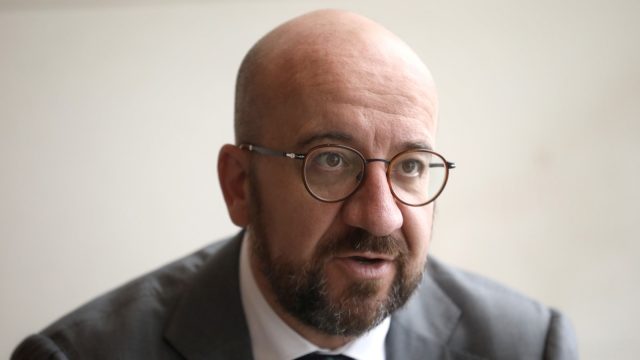
In a surprising twist during this week’s EU leaders’ summit, the European Council’s proposal to divert billions of euros earmarked for renewable energy and emission reduction efforts to immigration and defence exposes a stark hypocrisy in the global fight against climate change within the EU.
This move comes less than two weeks after Dubai’s Conference of the Parties where UN Member States committed to tripling energy production from renewable sources.
As member States grapple with competing financial priorities, the move raises questions about the true commitment of nations to address the pressing issue of climate change when economic interests are at stake.
European Council President Charles Michel’s proposal to slash nearly all of the €10 billion Strategic Technologies for Europe Platform (STEP) fund dedicated to advancing renewable energy technologies reveals a troubling trend. While countries like France, Italy, and Spain have outwardly supported the initiative, the reluctance of other frugal European capitals to increase budget contributions underscores a hesitancy to prioritize environmental concerns over financial considerations.
The compromise put forward by Michel involves reducing the STEP fund to €1.5 billion, with the remaining funds redirected towards military investments. This decision comes at a critical juncture, as the European Union grapples with the challenge of balancing economic stability, security interests, and environmental responsibility. The willingness to sacrifice a substantial portion of the green energy fund for other priorities highlights the influence of economic considerations in shaping climate policy.
The potential cut in the STEP fund is a stark reminder of the challenges faced by nations in upholding their commitments to combat climate change. While the European Union has set ambitious climate goals, the diversion of funds away from renewable energy initiatives exposes a glaring gap between rhetoric and action. As Germany recently scaled back its climate budget, and right-wing politicians seize upon opposition to green transition costs as a political talking point, it becomes evident that financial concerns are undermining the collective effort to address the climate crisis.
The internal disputes within the EU regarding the diversion of funds demonstrate a lack of consensus on the urgency of climate action. Portuguese Prime Minister António Costa’s disappointment and Bulgarian Prime Minister Nikolay Denkov’s alternative proposal reflect the growing tension between member states with varying economic priorities. Industry experts, including Thomas Pellerin-Carlin, warn that the compromise could be catastrophic for the clean tech industry, undermining Europe’s ability to compete with global leaders like the U.S. and China in the rapidly advancing field of green technology.
The move also puts into question some of the proposals in the Programme for the upcoming Belgian Presidency of the Council of the European Union. Their Programme was set to “place the energy and the climate transition at the heart of its priorities.”
The Belgians aim is to “strenght the energy union” that delivers “affordable energy to cittzens and companies, ensures strong and reliable security of supply, and contributes to climate neutrality.”
However, the European Council’s proposed diversion of funds from renewable energy to immigration and defense, hardly advances these goals or the targets contained within the Green Deal.
More importantly, it also exposes a disturbing hypocrisy in the global fight against climate change.
While nations make grand pledges and set ambitious targets, the hesitation to allocate adequate resources to green initiatives when financial interests are at stake raises serious doubts about the sincerity of their commitment. As EU leaders navigate the delicate balance between economic stability, security concerns, and environmental responsibility, the world watches closely, wondering whether the rhetoric surrounding climate change will translate into meaningful action or if financial considerations will continue to undermine the pursuit of a sustainable and environmentally conscious future.



 Subscribe
Subscribe